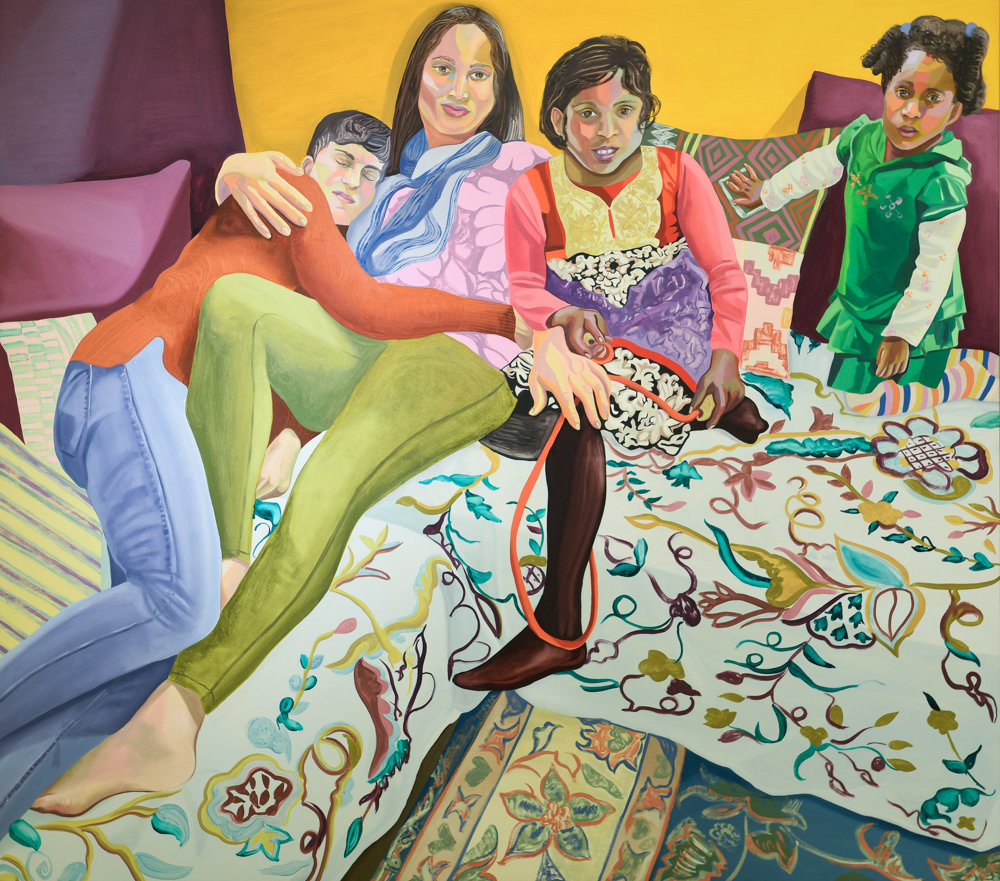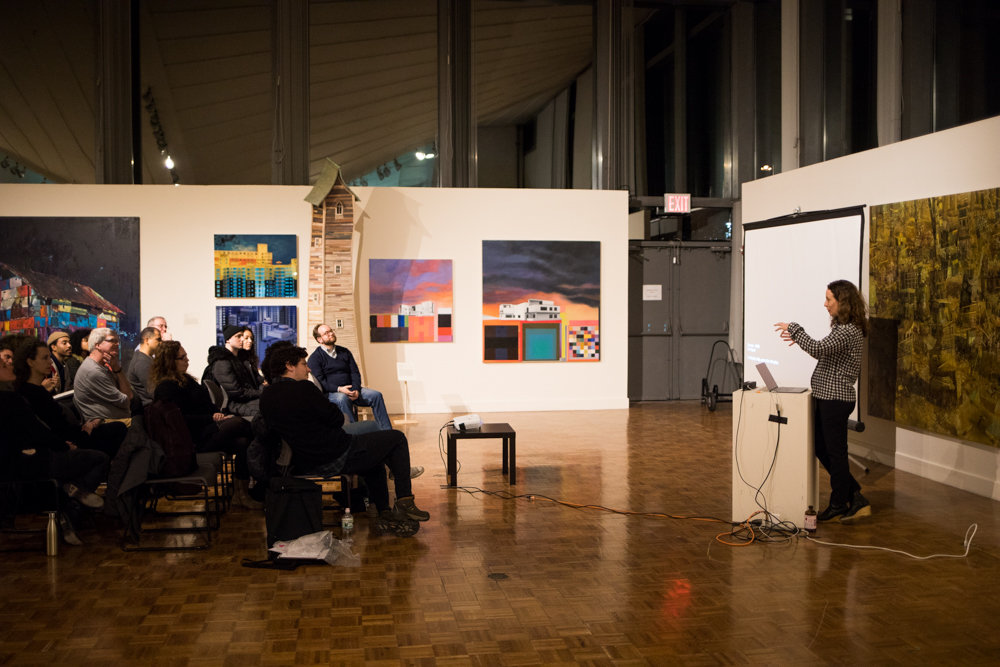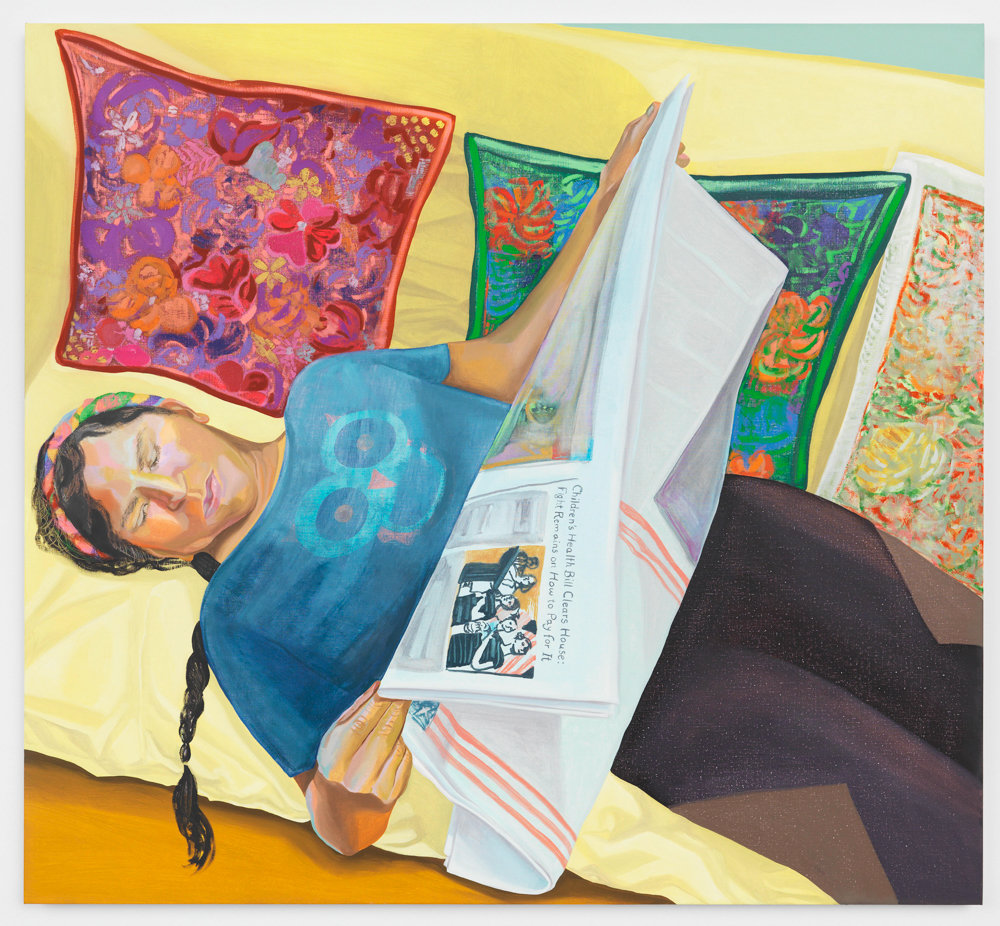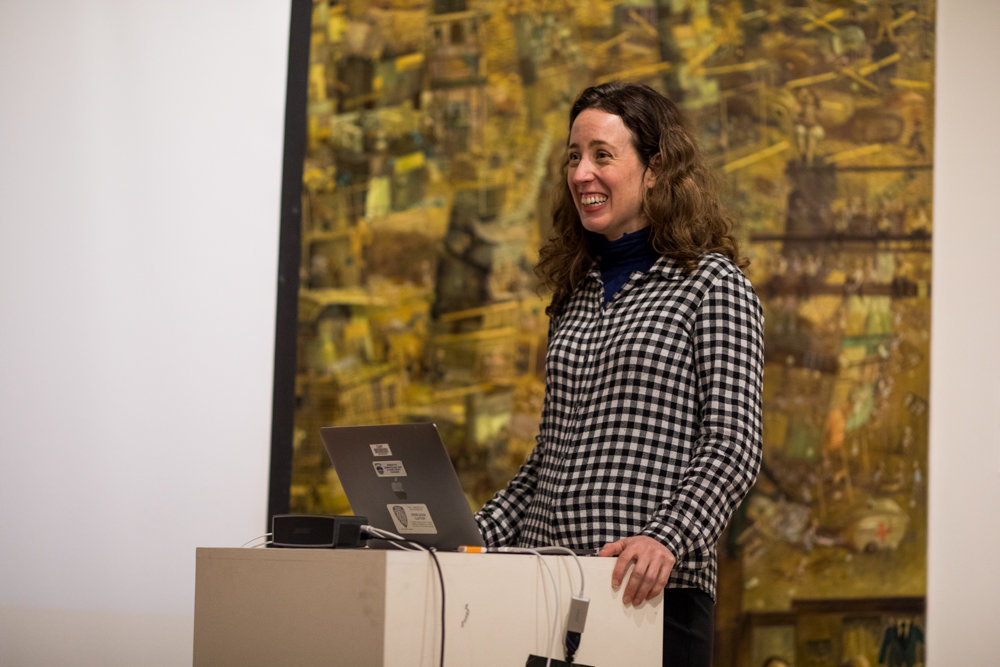Beauty of coming to America captured on canvas
When Aliza Nisenbaum paints a portrait, her muses are more than a prop. Over the course of completing her canvas, Nisenbaum becomes a friend.
Those friends of the Columbia University professor and artist tends to be Latin immigrants, a story that is becoming more and more important as immigration remains a hot issue in this country. She talked about that story during a recent talk at Lehman College.
In an always fast-paced world, Nisenbaum is never in a rush to complete her works. Developing friendships with her subjects takes time, a labor of love that can literally take hours. Or as what happened with one family she once painted, six years.
“I really like the way she talks to her subjects and how she built a relationship with them,” said Miguel Jimenez, a senior art major at Lehman. “Because of that relationship, it influences the work.”
Every portrait has a story, Nisenbaum said. When she volunteered at the Immigrant Movement International — a resource center for immigrants — she taught her students English through feminist art history. It was there she saw how courageous many of them were, and some of those students even ultimately sat in for portraits.
The people Nisenbaum painted in her series were immigrants, some even undocumented. Her work was about showing self-possessed people and not stereotypes or banners for political causes.
“They often feel very vulnerable,” Nisenbaum said. “They are giving you their image and they’re hoping you do a good representation of them. And it takes a really long time. It’s not like a photo. It’s a very slow document that is about the time passed with someone.”
Like a buddy, Nisenbaum would visit her sitters at their home and occasionally eat and drink with them — which was never the hard part, she said. However, the most tedious part of Nisenbaum’s work was making sure her colors were mixed to match the subject in complexion and essence.
She spent much of her time paying attention to the details on their faces.
Eventually, however, this segment of her art came to an end.
“I stopped the series,” Nisenbaum said. “I wanted to steer away from the way (Donald Trump) politicized people. It’s dangerous to work with this subject matter for the individuals I may be depicting.”
Some spoke to Nisenbaum about how they came to America while others spoke about their lives in their home country. A Mexican woman told Nisenbaum that, as a child, she would hide in the woods every day instead of going to school. She received a wild education from the forest, which eventually came to an end when her mother found out.
It’s those kinds of stories that could never be shared in just a quick sitting.
When Nisenbaum thinks about the way immigrants are sometimes treated and viewed in America, she has few words.
“It’s absolutely dehumanizing,” she said. “The way Trump is treating people is basically despicable.”
Nisenbaum studied at the School of the Art Institute of Chicago where she received her master’s in fine arts. Her work has been shown at the Whitney Biennial, the Museum of Contemporary Art in Los Angeles, the Minneapolis Institute of Art, and the Museo Rufino Tamayo in Mexico City.
When Nisenbaum presented some of her work in the Lehman College Art Gallery, many of the students were moved.
“It’s someone who has made it,” Jimenez said. “I think her work is very inspirational, and it has a lot of background to it. It is very intimately attached.”
Although Nisenbaum cites both Russian and Jewish ancestry, she was born in Mexico City.
She has more or less spent half of her life in America and half in Mexico.
The personal nature of Nisenbaum’s portraits is something that can’t be missed, according to Lehman senior Jadie Meprivert.
“Art is a form of elevation and uplifting,” she said. “And when you paint something, you really put it up there. And for her to chose her subjects to be immigrants — people who don’t get a lot of representation — that in and of itself is uplifting. Especially to me, myself, as an immigrant and minority.”













